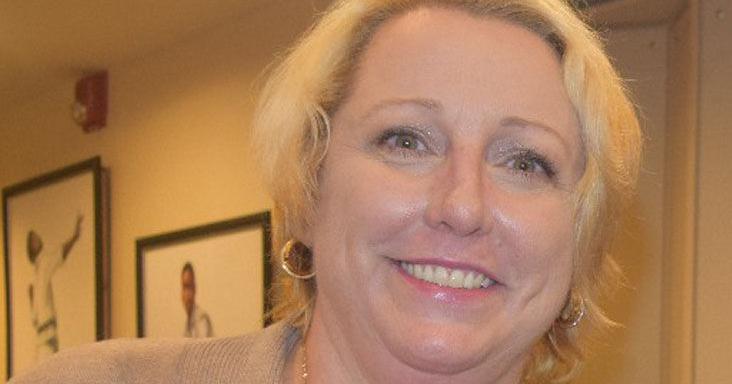IN response to concerns voiced by university graduates about the scarcity of jobs, Lara Quentrall-Thomas, chairman of Regency Recruitment and Resources Ltd, highlighted two key techniques for attracting employers’ attention: volunteering and active participation.
The employment gap is an age-old issue and has been discussed time and time again, but it persists.
Quentrall-Thomas with her 25-year-old recruitment agency, Regency Recruitment and Resources Ltd, wants to provide local and multinational firms with professionals looking for temporary, contract, or permanent work in the desired fields.
In an e-mailed response to Express Business, Quentrall-Thomas explained, “There are a number of ways in which young people can bring themselves to the attention of employers. Two key techniques are volunteering at industry and vocational events, and participating in conferences and webinars, even online. During these events, you let people know who you are, what type of work you can do, and showcase the value you can bring to their firm.”
But what about people wanting a job in the field they studied for? Quentrall-Thomas said it is vital to meet and network with professionals in the industry.
“Join your professional association – many have student or junior membership options. Volunteer at industry events. Offer to do an apprenticeship or internship, even if for free. Seek mentors and ask for their counsel. Ask them to introduce you to other contacts who may be hiring or open to discussing opportunities with you,” she stressed.
As for concerns about the lack of jobs within their respective fields, she advised that young people must showcase their “transferable skills” and adjust their expectations.
“(Demand for jobs outweighing supply) is definitely the case in some disciplines, as unfortunately, our education system does not talk to industry to tailor their curriculum in line with opportunities and future jobs. Unless you have a significant competitive advantage in their field, young people have to showcase their transferable skills, to be considered for opportunities in other areas. Also adjusting expectations – just because you have a first degree does not mean you go straight into management.”
Quentrall-Thomas suggested that young people may have to take a “lower” skilled job to place themselves in their respective industries and work their way up.
“All experience is useful when you are young, so don’t scorn opportunities that are not exactly in line with what you imagined you would be doing.”
What about those not wanting to further their education past secondary school, well she assured that some jobs only require people to have five or six Caribbean Secondary Education Certificate (CSEC) passes. But they must consider what fields they enjoy working in.
“Consider what type of work you enjoy and would do well in: on the front-line serving customers or in a back office working on your own? Out in the field or the office? Working shifts and weekends, or Monday to Friday? Off or on shore? Once you understand the type of work you are open to doing, and environment that suits you, you can then look at opportunities in a wide range of industries.”
Quentrall-Thomas said jobs in retail, hospitality, and restaurant sectors are high in demand.
“Often entry-level positions serving the public for example. Many of these offer long-term promotion and training opportunities, once the individual is willing to put in the hours and work hard.”
To access these positions, she advised people to visit the popular local job vacancy websites or recruitment agencies for available job posts.
“Many Government jobs are advertised on Facebook as well as the Government HRIS (human resource information system). Read the newspapers and look for jobs in the classified section. You have to be everywhere all at once,” she advised.
She added, “Your job now is finding a job.”
The entrepreneurs journey
But what if this doesn’t pique your interest? Express Business also spoke to a barber Jeremiah Hayes, 21, and a lash technician Adunni Tafari, 26, owner of Lash in TT to get their perspectives on why they decided to start their businesses instead of working in the corporate world.
Many young people have opted to start their own businesses in fields that interest them, leading to an influx of online shops through social media platforms like Facebook and Instagram. For Hayes, he said he wanted to defer from working in a demanding space until retirement and preferred to have a more flexible working life.
“As a young adult experiencing the working world, knowing that I may have to engage in either a physically demanding or sedentary job environment to the age of 60 years, I chose to defer from that path to gain something of higher value. I started my business so I can be more flexible and independent moreover chasing my dreams and aspirations. As an entrepreneur, I often have greater flexibility in terms of when I work and where I work due to it being easier for me and having the freedom to make my own decisions,” Hayes said in an e-mail exchange.
He added that it only took six months to get his business up and running because he was able to figure out and follow his vision bringing it to reality.
“Knowing what you want to do and realising how to achieve it could not have been further apart for me. Thanks to some colleagues of mine who are also pursuing similar fields in cosmetology I was given some tips and advice on how to go about it.”
He now operates on his own schedule, making house calls to offer his services. He earns a minimum of $2,000 a month and a maximum of $3,500.
“Currently, I would need around $800 to supply the items for my business since it also does not have a set monthly income as some months, I may make roughly around $2,000 a month with little house calls and around $3,500 when house calls are flourishing (even though there are months where customers are abundant). To me being self-employed is better because as my skillset improves so does my clientele, tips, demands, and income.”
Hayes also offered some advice to young people considering tapping into their entrepreneurial spirit, “If you have a dream, chase it, do research, be diligent, plan it, and gain the skills. I’ve heard too many people complain about not being able to aim towards their goals. If there’s a desire, there’s a way to reach there. To those who may think they’ve been working too long, that you may be ‘too old’, you still have time, start it as a side hustle even if you’re tired, make time. It’ll be worth it.”
Tafari described her journey to becoming an established lash technician in Trinidad as somewhat unorthodox. Due to the Covid-19 lockdowns, she was confined to using mannequin heads and online classes to practice, rather than working on humans directly.
She added that this was her way of mastering a new skill during the pandemic.
As for working for herself, she said, “On some days it is better (than working for people), but running your business requires a lot of accountability and discipline. When you’re working for someone, you have a supervisor who sets deadlines and checks up on you, but when running your own business, you have to come up with it on your own. You have to hold yourself accountable and make sure you do all that you have to do to ensure your success.”
But there are days when you don’t feel like doing any of that, she added.
“Discipline is more important than motivation because some days you just aren’t motivated, so I wouldn’t say running your own business is better, but it does require a lot more maturity.”
Tafari drew her experiences from both working on her own and her day job at the Unit Trust Corporation (UTC) and said they both have their pros and cons.
“I didn’t switch because I’m very much interested in my work a UTC and I want to do both jobs simultaneously.”
She mentioned that after completing her 9-5 shift, she starts working on her clients and also schedules additional appointments on weekends.
Regarding her business expenses, she explained that there are monthly costs associated with it, including the purchase of supplies that must be replenished regularly. “
“Lash glues will expire every month and whether it’s finished or not, you have to get another one and this will cost anywhere between $150 to $300, and then the actual lashes, this I can’t put a time as to when it will finish because it’s based on how many people make appointments.”
Tafari further added that there are disposable products, such as spoolies (mascara wands), as well as other sanitary items like paper towels and gloves, that need to be replenished regularly. She is currently considering expanding to a dedicated studio space instead of her home setup to enhance the comfort of her clients, which she anticipates will increase operational costs.
As for her monthly earnings, she said it’s based on the services done by clients, and on a “slow month” with two clients, she makes $4,000, but she can make up to $10,000 monthly part-time.
For those wanting to take the leap and start their own business, she said, “Believe in yourself.”
Though she admitted it was a cliché, she explained, “It’s going to come with a lot of anxiety, self-doubt, questioning yourself, so you really have to have the confidence to put yourself out there and know that you can do this and that your business will be successful.”















